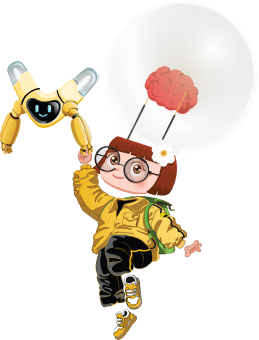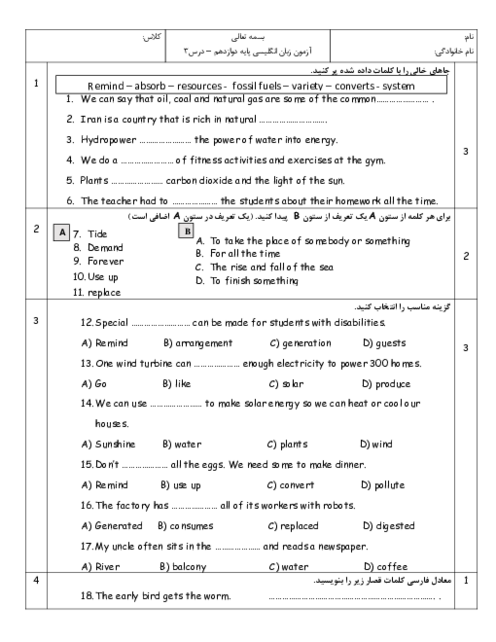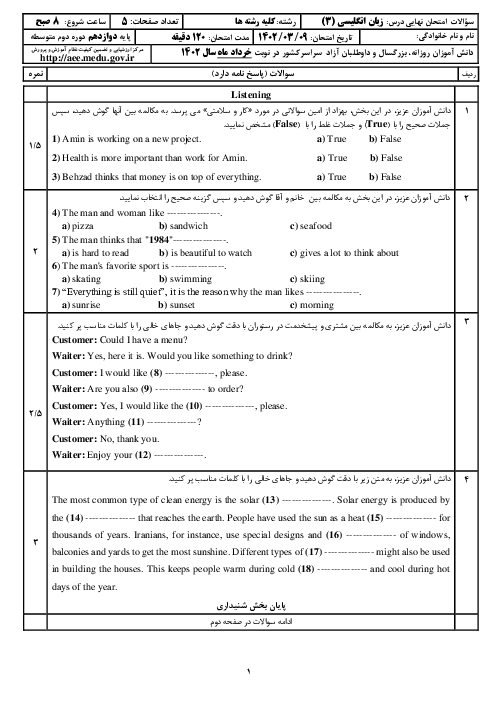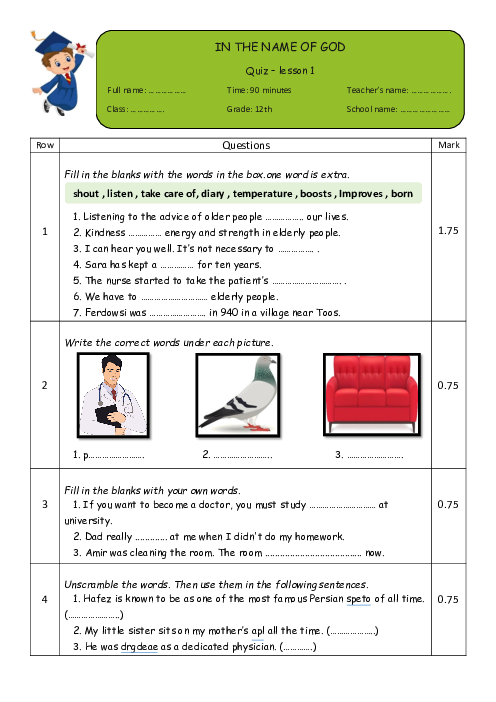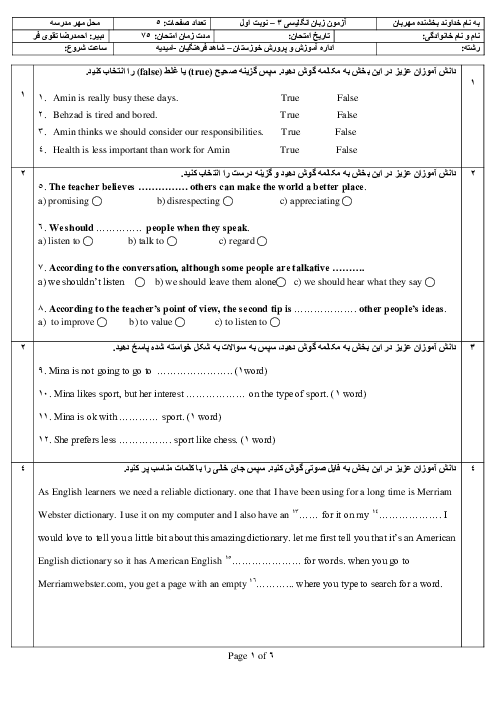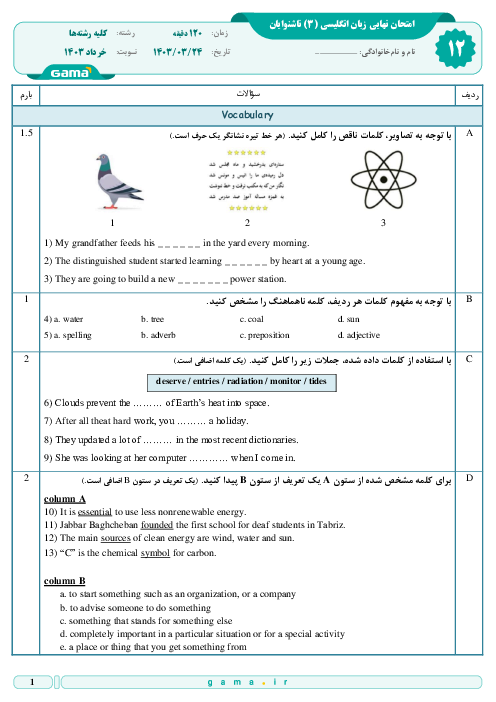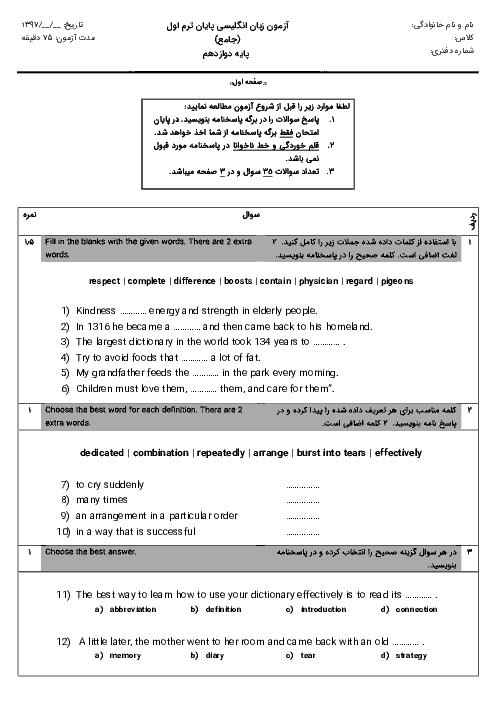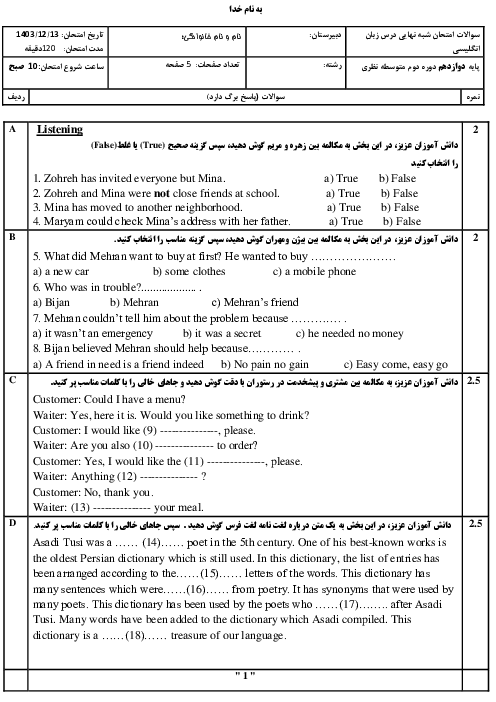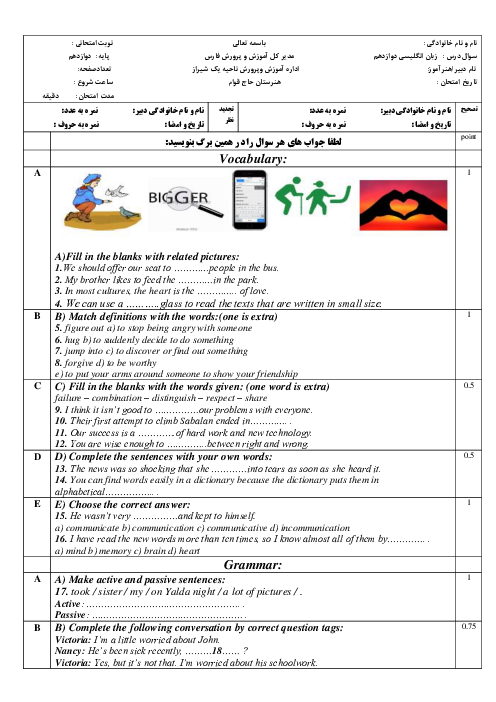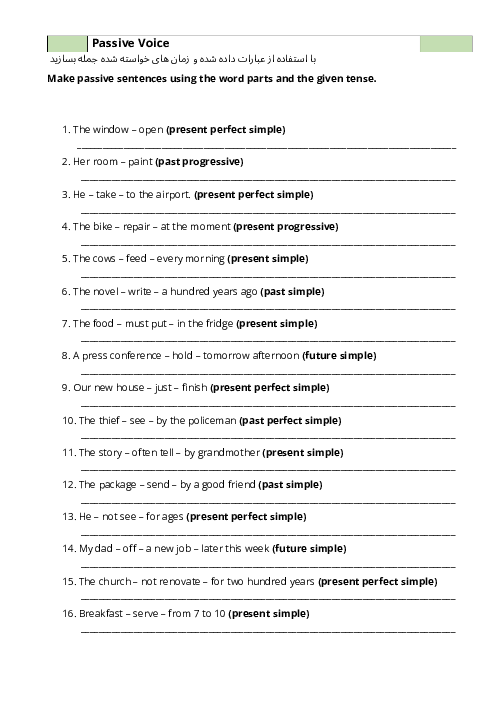■■ Reading Comprehension II
The smallest living creatures on Earth are bacteria. In fact, you can't see them without a microscope. Bacteria may be small, but there are a lot of them. A gram of soil, for example, may contain more than a billion of these organisms! They have been on this planet for a long time. In fact, the oldest known fossils are of bacteria. These organisms can also survive where others cannot. Bacteria have been found in cold places such as in deep Arctic ice and in hot places such as the insides of geysers.
We tend to think of bacteria only as "germs" that make us sick, but bacteria do many things that help life on Earth survive and thrive. They help break down dead plants and animals into soil nutrients. Without these nutrients, soil could not be used to grow food for humans and animals. Without bacteria, ecosystems would be less healthy because dead plants and animals would not break down properly. Bacteria are also responsible for the flavor and texture of some foods. They affect the taste of some types of bread, for example. And without bacteria we would not have cheese or yogurt.
The human body needs some bacteria to function properly. Microscopic bacteria in our stomachs and intestines help us digest food. In addition, bacteria help remove dead skin cells so our skin can breathe. Some kinds of bacteria even fight off other kinds of bacteria that can make us ill. Scientists, in fact, use bacteria to make medicines that help us recover from illnesses. Bacteria just might be the most beneficial organisms on Earth!
The main idea of this passage is best expressed in which sentence?
1 )
Bacteria may be small, but there are a lot of them.
2 )
Without bacteria, ecosystems would be less healthy.
3 )
Without bacteria we would not have cheese or yogurt.
Bacteria might be the most beneficial organisms on Earth.
پاسخ تشریحی :
تحلیل ویدئویی تست
تحلیل ویدئویی برای این تست ثبت نشده است!

